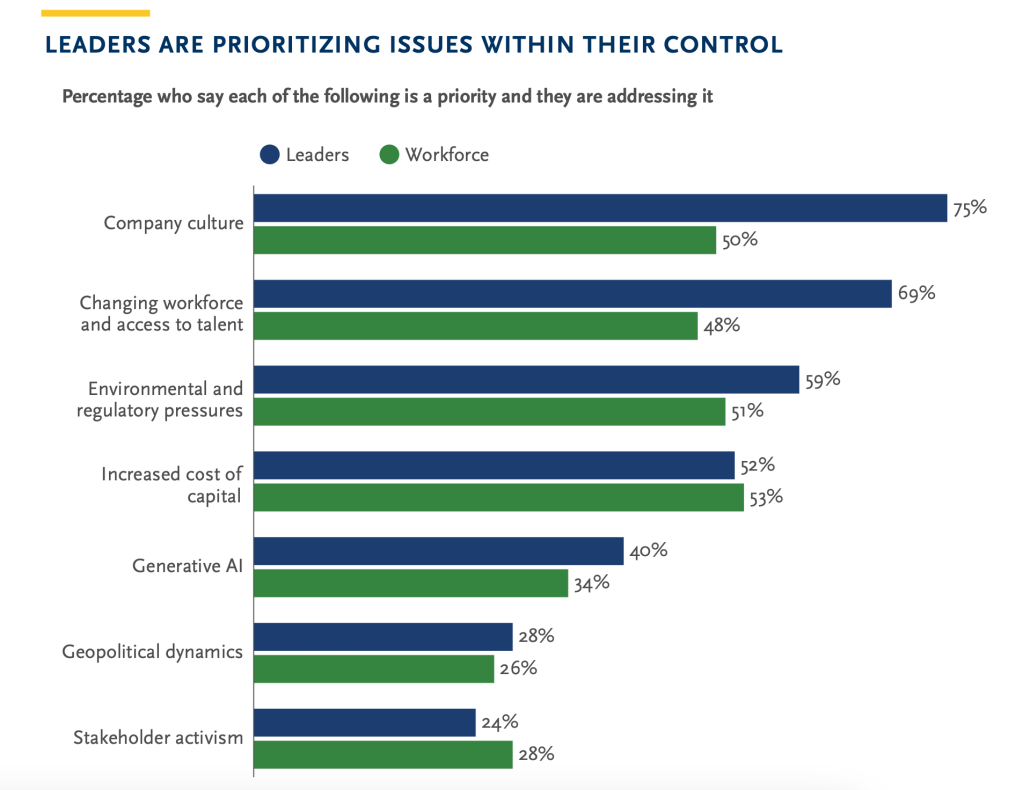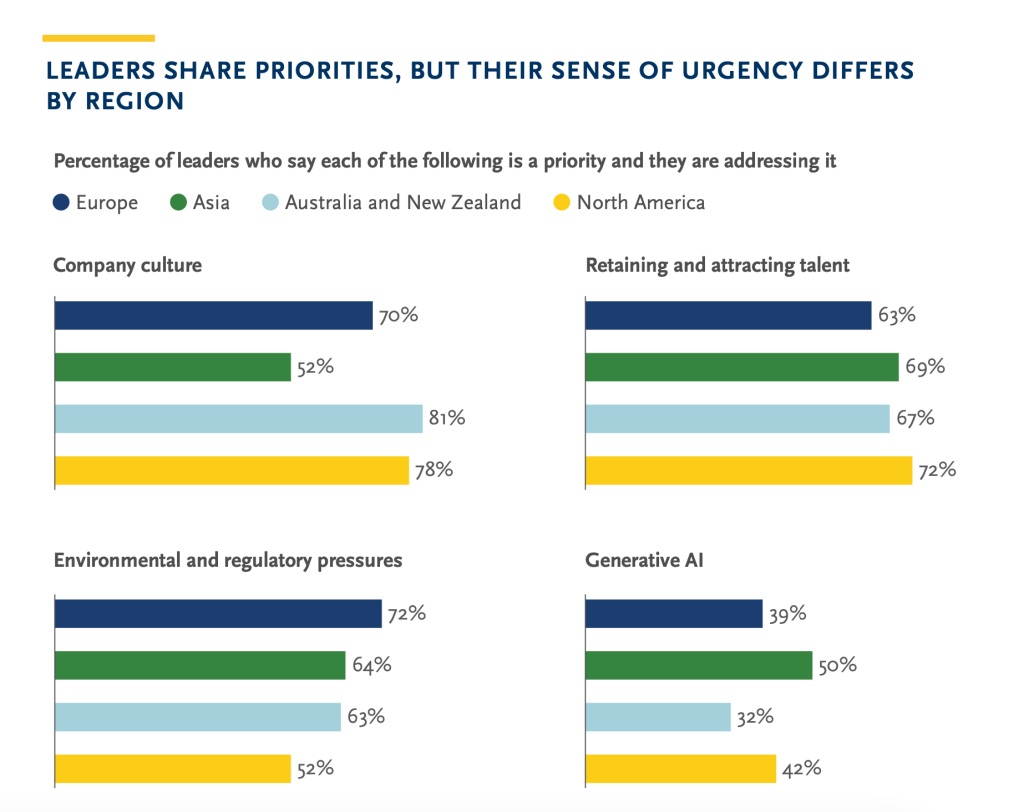SpencerStuart’s annual board and CEO survey found an exceptional number of strategic challenges in 2024.

The connection between company culture and access to talent seems very clear to us. If workers do not believe they are valued and have purpose, companies will not earn the loyalty they need to attract, retain, and motivate employees. Culture is hard to measure and monitor, but employee turnover is one good indicator. We note also that despite immense pushback by corporate executives on the importance of ESG, those factors are being taken very seriously — if not effectively.
Of particular interest in a US election year are the responses about political issues.
The pervasiveness of geopolitical issues is hard to ignore amid protests at many university campuses and looming elections around the world. More than two- thirds of all leaders (68 percent) worry the U.S. presidential election in November will become a major distraction at work, much more so than elections recently completed in India (19 percent) or the forthcoming general election in the United Kingdom (25 percent). Keeping their organizations engaged and focused amid ris- ing political tensions and other internal and external distractions is a top-of-mind challenge for CEOs and directors. As one CEO asked, “How are you motivating your teams to be focused given all the externalities that are impacting business and per- sonal lives of your employees?”
In today’s multistakeholder world, leaders also grapple with whether and how to engage publicly on nuanced political and social issues, weighing the potential risks to the company’s brand and shareholder value of engaging — or not — on these issues. Globally, 45 percent of leaders feel at least moderate pressure to publicly address political issues, with leaders in sectors such as government, nonprofits and academia (58 percent) and entertainment (56 percent) most likely to feel pressured. CEOs and board directors in North America report feeling significantly less pressure to address political issues than their European peers. Only 37 percent of leaders
of companies based in North America said they felt high or moderate pressure to engage on political issues, compared with 59 percent of CEOs of companies with European headquarters. CEOs in France (72 percent), Italy (70 percent) and Ger- many (67 percent) were most likely to feel at least moderate pressure to engage on political issues. Interestingly, 67 percent of employees themselves actually prefer CEOs and companies avoid publicly engaging on political issues.
So how are leaders responding? Nearly half — 46 percent — navigate these issues with caution and minimal involvement, and another 35 percent get strategically involved when necessary. Some 19 percent practice active, thoughtful engagement. Given the potential brand and reputational risk of being caught wrong-footed on a particular issue — along with potential destruction of shareholder value — we expect that CEO communications will demand more energy, focus, planning and preparation than ever, in terms of both leadership commitment and board oversight. In particular, boards at many companies are seeking more clarity and transparency from management about the processes and structures in place for guiding decisions about whether and how to address political and social issues.
One of the most intriguing findings of the survey is the differences by country.

Key findings:
What did we find? Through both quantitative data and thousands of unfiltered responses, we learned that while the existential issues expected to consume them just a few months ago are on their minds, the world’s business leaders are most focused on issues they can more directly control: company culture, changing workforce dynamics and access to talent. Fewer than half of all leaders surveyed are prioritizing and addressing the disruptive emergence of generative AI, for example, while barely a quarter feel compelled to address geopolitical dynamics right now.
More than three-quarters of CEOs and board directors feel high levels of business uncertainty, and most see the risks accelerating. Notably, directors are far more likely to be very confident in their CEOs’ readiness than CEOs are in their board members to deal with the changing environment.
Business leaders are focusing on internal priorities – led by company culture and talent attraction and retention – while keeping a watchful eye on external disruptions.
Senior leaders want and need to hear from one another as they navigate this period but should also listen closely to their employees as there are disconnects on some key issues.
Measure of Leadership: CEOs and Directors on Navigating Change
